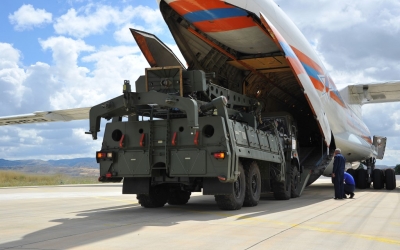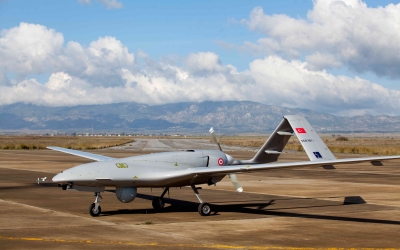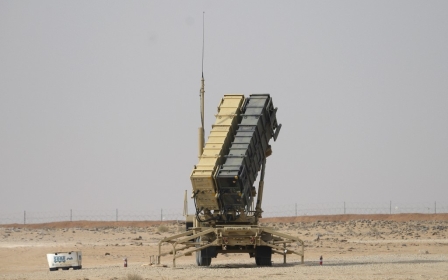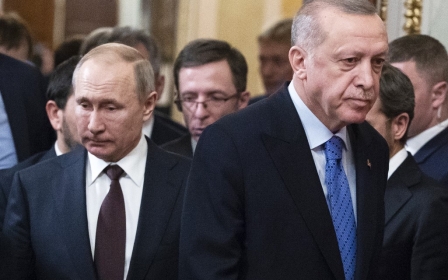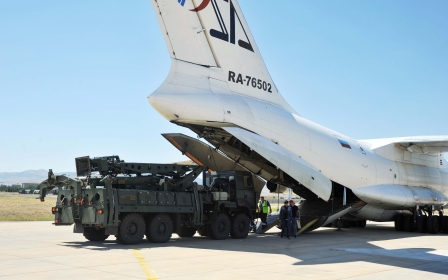US senators call for sanctions on Turkey over Russian missile system
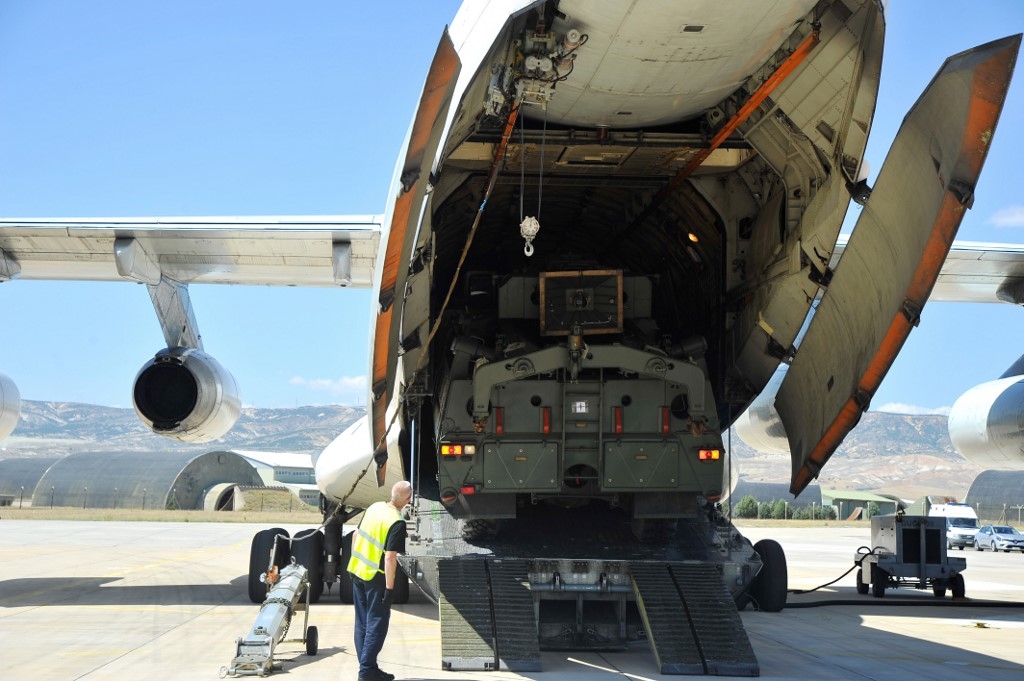
A Republican and a Democratic US senator are calling on the Trump administration to sanction Turkey amid reports that Ankara is due to test its Russian-made S-400 missile defence systems as early as next week.
Republican James Lankford and Democrat Chris Van Hollen wrote to Secretary of State Mike Pompeo asking about the report, saying that Washington's failure to act more decisively about the S-400 purchase had "emboldened" Ankara.
Turkey acquired the S-400 batteries from Russia last year despite warnings from the US and Nato that the purchase would see Ankara ejected from the F-35 stealth fighter jet programme and potentially exposed to damaging sanctions.
In April, Turkey quelled some of the concerns, indefinitely suspending the activation of the S-400 systems, saying that the coronavirus crisis was impeding efforts to set it up.
Still, Ankara was removed from the programme but has so far managed to avoid sanctions, with lawmakers arguing that President Donald Trump has been too lenient with his Turkish counterpart.
Because Russia's S-400 defence system has the ability to "learn" flight patterns and other data about aircraft flying overhead, Washington views a Nato ally buying Russian arms as a security threat and had previously asked Ankara to pull out of the weapons deal.
"We write concerning public reports that Turkey has activated the radars of its Russian-made S400 anti-aircraft system, in order to detect U.S.-made F-16 fighter jets returning from the Eunomia exercise conducted by France, Italy, Greece and Cyprus in late August in response to Turkey's unwarranted aggression in the Eastern Mediterranean," the senators wrote in a letter Wednesday.
"Given this information, we again urge you to impose sanctions on Turkey as required by law," they added.
Under the US's Countering America's Adversaries Through Sanctions Act (CAATSA), it is required to impose sanctions against those that do business with Russia’s defence industry.
The pair also asked Pompeo to confirm the reports of Turkey's use of the systems and whether the country has integrated them into Nato's tactical data link, asking whether that would "enable Russia to gather information on NATO allies", an ongoing question in the debate.
A drawn out battle
Despite the purchase of the S-400 system, the Trump administration never imposed sanctions under CAATSA, and has said that Turkey will continue to be allowed to make parts for the F-35 programme it was expelled from until 2022.
US officials in the past offered several deals to Turkey to prevent sanctions and supply its air defence needs, but Turkey's President Recep Tayyip Erdogan refused.
Earlier this year, officials told MEE that any deal to sell US-made Patriot systems to Turkey or its return to the F-35 project would be tied to Turkey not activating its S-400s.
"Reports of this activation make clear that Turkey has no intention of reversing course and divesting of this system," Van Hollen and Lankford wrote.
"Additionally, the slow pace at which the Department of Defense is moving to remove Turkey from the F-35 supply chain has no doubt emboldened President Erdogan."
In December, Van Hollen made a similar call alongside Senator Lindsey Graham, a Republican.
At the time, Turkey threatened to close two military bases used by the US in response to Washington's threats of sanctions and the passing of a Senate resolution recognising mass killings of Armenians a century ago as genocide.
"If necessary, we can close Incirlik and we can close Kurecik," Erdogan warned.
The two bases sit on Turkey's southwest coast, near the border with Syria. Incirlik hosts US nuclear warheads.
"If they are threatening us with the implementation of these sanctions, of course we will be retaliating," Erdogan said at the time. Erdogan has regularly raised this possibility in the past during periods of tension between the two countries.
Middle East Eye delivers independent and unrivalled coverage and analysis of the Middle East, North Africa and beyond. To learn more about republishing this content and the associated fees, please fill out this form. More about MEE can be found here.


